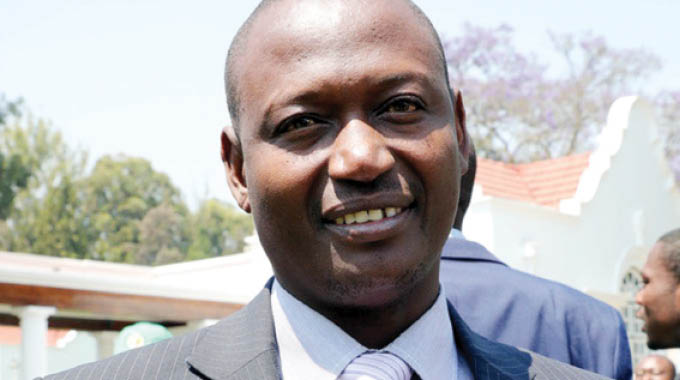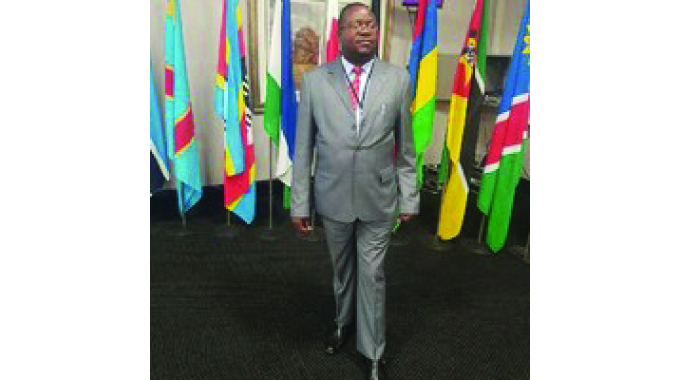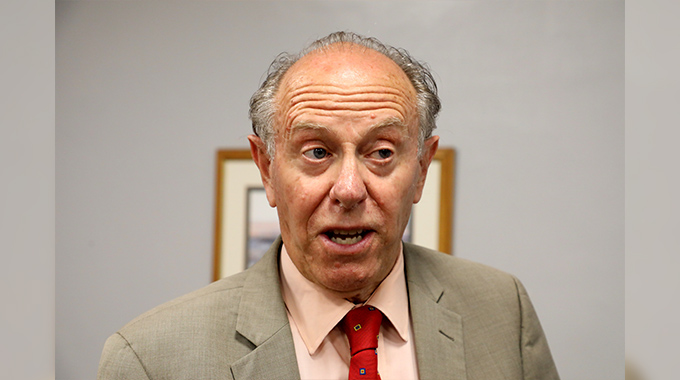Govt making huge strides in revitalising irrigation schemes

Michael Magoronga, Midlands Correspondent
THE Government has made significant strides in revitalising irrigation schemes and water harvesting programmes across the country as it pursues sustainable food security anchored on resilient agricultural production and productivity, Lands, Agriculture, Fisheries, Water and Rural Development Deputy Minister Douglas Karoro has said.
In a speech read on his behalf by chief director (Strategic Policy Planning and Business Development) in his ministry, Mr Clemence Tapererwa Bwenje, during the commissioning of Mayorca Irrigation Scheme in Silobela on Tuesday, Deputy Minister Karoro said the country cannot continue to rely on rain-fed agriculture while rivers flow into Zambezi and Limpopo.
In pursuit of an empowered upper middle-income economy by 2030, Government is targeting to rehabilitate and develop 350 000 hectares of land by 2025 across the country to safeguard the country against the negative effects of climate change and ensure food security.
Of these, the Smallholder Irrigation Program (SIRP) will contribute 6 100 hectares on 60 irrigation schemes. Co-financed by Government in partnership with the International Fund for Agricultural Development (IFAD), OPEC and Fund for International Development (OFID), the programme, which began in 2016 and is expected to run until 2023, is expected to benefit 27 500 farmers.

Mr Clemence Tapererwa Bwenje,
Mayorca is one of the 60 irrigation schemes that has benefited under SIRP with 76 hectares and 76 beneficiaries. Recently, Banga Irrigation Scheme in Masvingo Province was commissioned with a number of other schemes like Mutange in Gokwe and Exchange Irrigation Schemes earmarked to commence operations.
Deputy Minister Karoro said as the country grapples with effects of climate change, Government was intensifying revitalisation of irrigation schemes.
“In the last decade, the country has been and continues to experience changes in climatic conditions. Rainfall patterns are no longer reliable with droughts and floods occurring more frequently.
As a country we boast of more than 10 000 small to medium dams sufficient to irrigate up to two million hectares, but our irrigation is still under 15 percent of this potential hence the accelerated move by Government,” he said.
Deputy Minister Karoro said the agriculture sector does not only contribute 17 percent to the country’s GDP, but most importantly, it provides 67 percent of the country’s population with a source of livelihood.
“Cognisant of this reality and as part of the roadmap to Vision 2030 and NDS1 one of the key deliverables of these blue prints is sustainable food security. My ministry is therefore mandated with achieving food self sufficiency from 45 percent in 2020 to 100 percent by 2025,” he said.

This, he said, entails increasing maize production from 907 629 tonnes to three million in 2025 among other targets.
Deputy Minister Karoro said Mayorca was a clear demonstration of the commitment that Government places on irrigation development to climate-proof agriculture for sustainable and resilient transformation of the rural space.
He urged the Mayorca Community to protect their equipment saying vandalism was a major setback in Government efforts to revitalisation of schemes.
The 76 hectare scheme is benefiting 76 farmers, with each farmer entitled to a hectare of land. At the moment, the scheme has 38 hectares under soya beans and another 38 hectares under maize.
The main works at Mayorca Irrigation Scheme included rehabilitation of the dam wall which had been split by heavy rains, installation of pump units, laying of pipes, rehabilitation of hydrant pieces and supply of infield equipment and pipes all to the tune of US$944 215.
SIRP Project Coordinator, Mr Odrick Mukorera said US$51,68 million had been channelled to the programme which is set to benefit more than 27 500 rural households.
Of this number, 15 000 households are irrigators and 12 500 households are in the adjacent rain fed areas. To achieve this, SIRP has two mutually reinforcing components according to Mr Mukorera.
“The first component focuses on sustainable smallholder irrigation development and the lead implanting agent is the department of irrigation while the second component facilitates implementation of climate smart agriculture and market access with Agritex and department of mechanisation being the major implementation agents,” he said.
SIRP is targeting to rehabilitate 1 258,4 hectares in Midlands which will benefit 29 888 farmers. To date, said Mr Mukorera, rehabilitation has been completed for Exchange Irrigation, the biggest in the province and Mayorca.
Besides crop farming, Maryoca farmers are also embarking on goat and chicken rearing, and bee keeping among other projects.












Comments